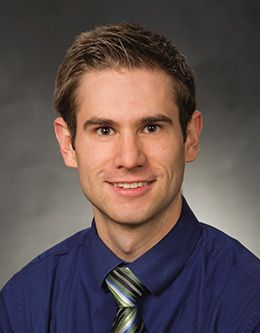I believe that we, the graduating class of 2015, are the students that Alfred Kelly saw more than one hundred years ago. What can we do to be the vision?
Elder Snow, President Worthen, and fellow graduates, I am grateful and honored to address you today. One hundred and two years ago the student graduation speaker, Alfred Kelly, mounted the podium as I do now and forever changed the course of BYU.
BYU was in financial difficulties, and plans were in place to sell some of the school property. However, Kelly had a vision. In his vision he literally saw the present-day BYU that we now know.
As past BYU president Jeffrey R. Holland has told the story, while Alfred Kelly stood on Temple Hill,
everything he saw took on the appearance of people, young people about his age moving toward Temple Hill. He saw hundreds of them, thousands of young people coming into view. He knew they were students, he said, because they carried books in their arms as they came. . . .
The students then entered these temples of learning with their books in hand. As they came out of them, Kelly said their countenances bore smiles of hope and of faith. He observed that they seemed cheerful and very confident. Their walk was light but firm.
Alfred Kelly’s vision changed the course of BYU with “all believing in the dream of a Provo schoolboy, all believing the destiny of a great university which that day had scarcely begun” (Jeffrey R. Holland, “Who We Are and What God Expects Us to Do,” BYU devotional address, 15 September 1987; emphasis in original; see B. F. Larsen, “Fifty Years Ago,” speech given at a BYU alumni meeting, 25 May 1962, B. F. Larsen biographical file, BYU Archives, 4–5).
I believe that we, the graduating class of 2015, are the students that Alfred Kelly saw more than one hundred years ago. What can we do to be the vision? I will discuss three ways in which we can be the students that Kelly envisioned on Temple Hill.
First, who we are is more important than what we know. Were the students that Kelly saw distinguished by their intelligence, looks, or skills? No. They were distinguished by their character, their hope, their faith, and their cheerfulness. In our future careers and activities, how will we be distinguished?
The same facts that are taught here at BYU are taught at other schools. Absolute zero is still −273 degrees Celsius here as it is at Harvard. D-Day still is recognized as happening on June 6, 1944, here at BYU as it is at Yale. Michelangelo’s Sistine Chapel is still a masterpiece of the Italian Renaissance here as it is at UCLA. If the facts are the same, what is it that makes us unique as BYU students?
Why did you come to BYU in the first place? Maybe because you wanted to be in a specific program or to be taught by a specific professor. Maybe because your friends came here or maybe because of the opportunity to be with those of similar values and beliefs.
Whatever the reason, I hope that you now know why you are a BYU Cougar and that you have been changed because of it. I hope that you now know that secular knowledge does not clash with religious knowledge but rather enhances it. To be the vision, we must be distinguished by our character, leadership, charity, kindness, honesty, and integrity. As BYU graduates we have the unique responsibility and opportunity to be lights on a hill in this darkening world.
Second, seek for and create temples of learning. We have been privileged to attend and study in temples of learning throughout our education. As we graduate, we will no longer have the opportunity to be in these temples of learning that are spread throughout campus. To be the vision, let us take a piece of these temples of learning with us. Wherever we are, whether it be at work or at home, let us make our own temples of learning through our openness to innovation, desire for growth and improvement, and dedication to lifelong learning.
Third, have a personal vision for your life. Just like Alfred Kelly’s vision changed the course of this school, our own personal vision can change the course of our life. This year’s women’s volleyball team used #WhyNotUs on their remarkable run to the national championship game. Likewise, I would pose the same question: Why not us? Why can’t we become the world’s most influential engineers and scientists yet also be the most humble? Why can’t we become the world’s most innovative artists, teachers, and lawyers yet also be the most kind? Why can’t we become the world’s most successful authors, businessmen, and doctors yet also be the most family oriented? Even if our plans and goals do not pan out exactly how we have envisioned them, we will still benefit from having that vision.
As we go forth to serve, let us remember our legacy and those who have gone on before us. Kelly’s vision of us changed the course of BYU in the past, and now we, the graduating class of 2015, will change the future course of BYU through our influence for good, our drive to innovate and excel, and, above all, our integrity and character in all situations. First, remember that who we are is more important than what we know; second, seek for and create temples of learning; and third, have a personal vision for your life. As we do these things, we will be the vision. Thank you.
© Brigham Young University. All rights reserved.

Ryan T. Barrett spoke as the representative of his graduating class at BYU commencement on 23 April 2015.


